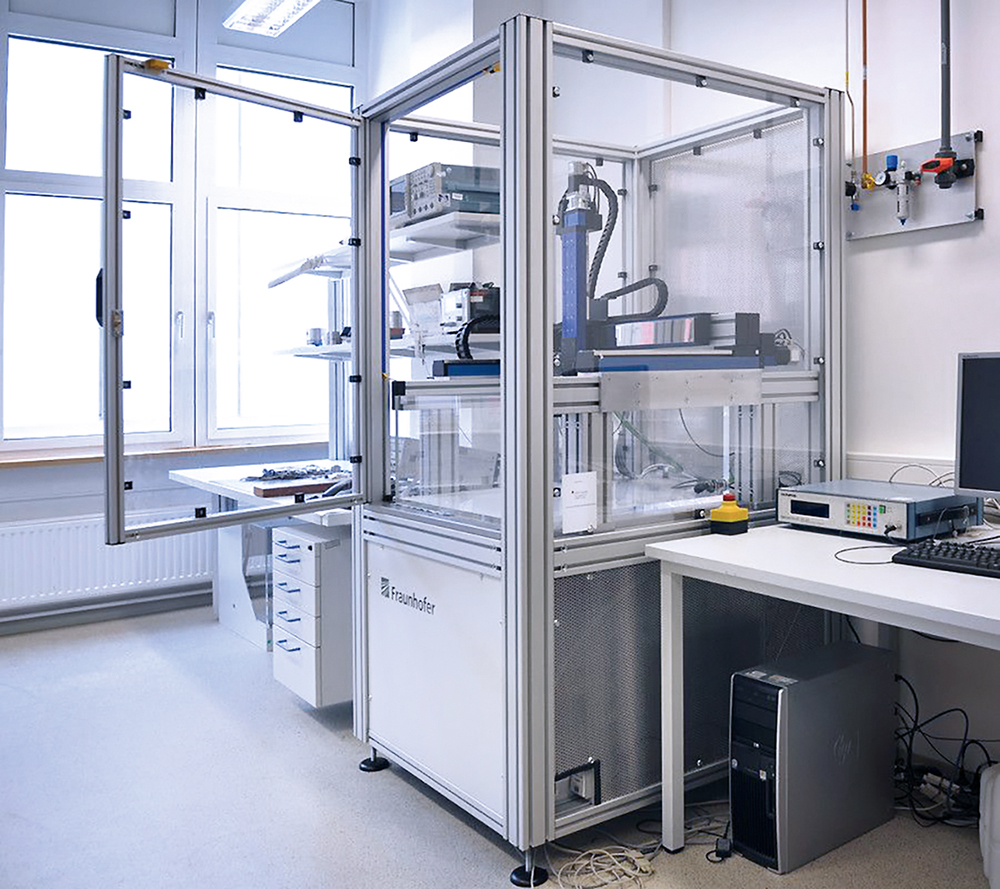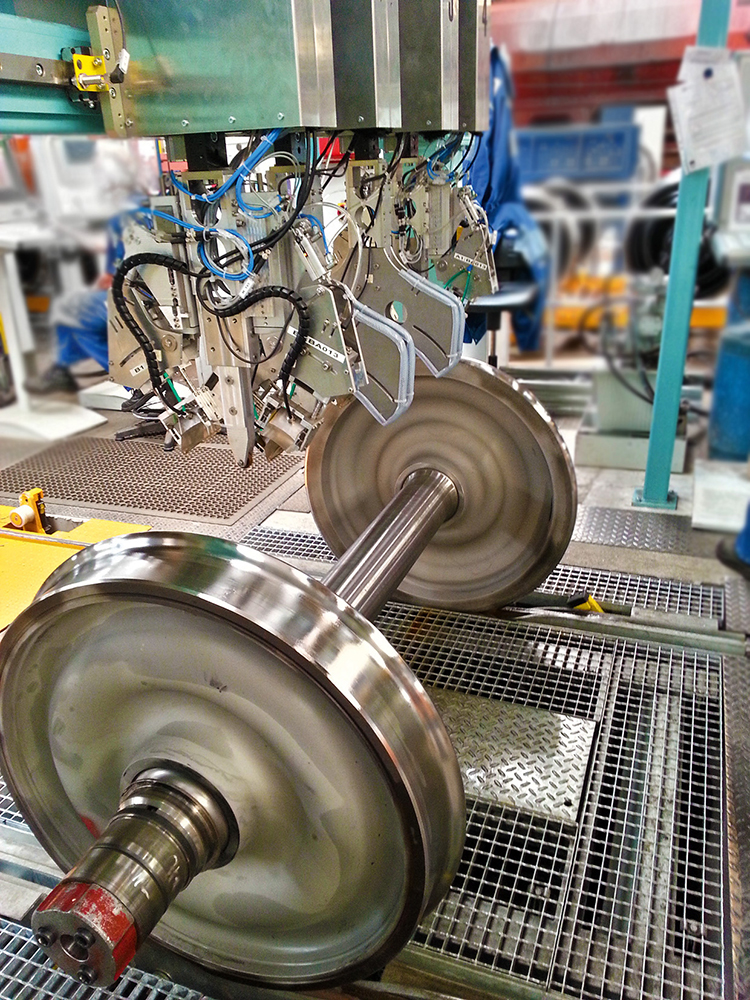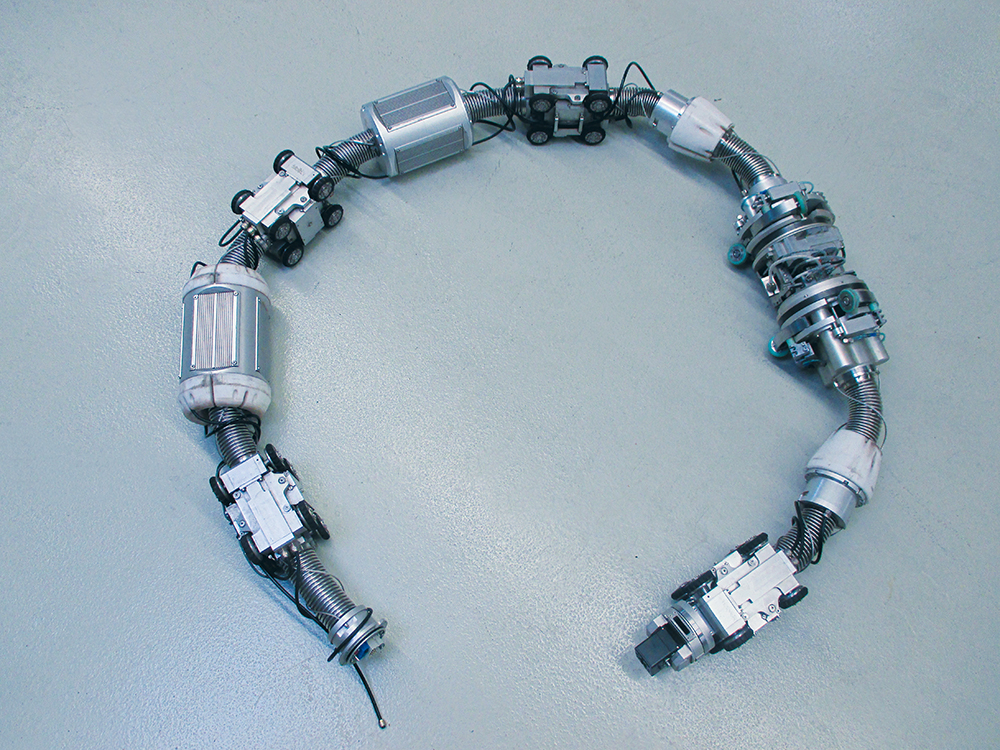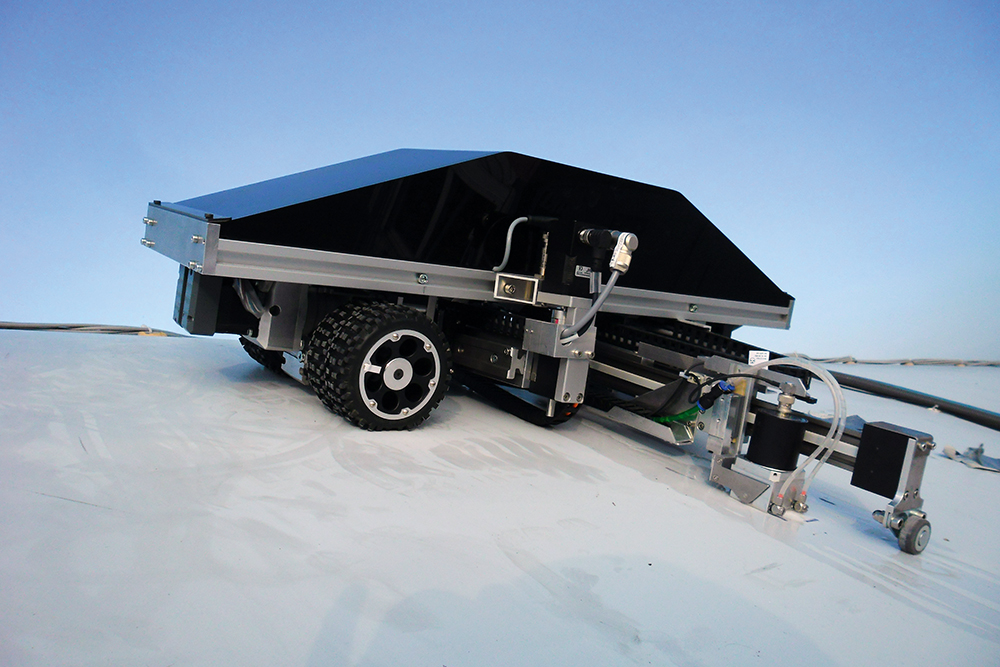
Test systems

Fraunhofer IKTS develops customer-specific ultrasonic test systems for the lab as well as for industrial applications, carrying out their installation and commissioning, including staff training, as required by customers.
Test systems for lab applications


Fraunhofer IKTS develops highly specialized ultrasonic test systems used in fields not fully served by the current product portfolios of test device manufacturers. The development of a test system always starts with the assessment of the customer’s individual requirements with regard to maximum scan area, required precision, electronics and analysis software. Based on this assessment, ultrasonic test systems for lab applications that comply with the requirements can be developed within collaborative or bilateral projects, e.g. for sample quality testing of materials or products. One focus of IKTS is the supply and implementation of systems for measuring sound fields and other transducer parameters, such as center frequency and bandwidth, for the manufacturers of ultrasonic transducers. IKTS also implements upgrades of systems for newly developed measurement methods that have already been tested for fixed transducer positions and are now to be extended by a scanning option.
Services offered
- Building of customized multi-axis scanners according to customer requirements
- Integration of ultrasonic electronics from the PCUS® pro series of Fraunhofer IKTS or from second source providers
- Control of single probes and/or phased array probes
- Signal analysis options and dynamic depth focusing
- Adaptation of alternative sensors is possible (e.g. laser vibrometer, electrodynamic probes, hydrophones, small manipulator systems, such as HUGO III)
Test systems for industrial applications


Industrial test systems are used for interval-based inspection and maintenance as well as for integrated quality assurance within a production line. The requirements for this with regard to robust hardware and intuitive software vary depending on the actual use case. Beside providing installations from the institute’s own development efforts, IKTS also builds customer- specific test systems for manufacturing processes from commercially available industrial robots.
Ultrasonic test systems for railway vehicles
The test systems devised by Fraunhofer IKTS have often been used in the field of railway vehicles, where safety is key. The focus of development was on systems for testing components which experience high levels of stress, such as axles and wheels. These systems were developed in cooperation with partners from industry and are successfully marketed around the world. Fraunhofer IKTS has provided these systems with the institute’s own power electronics of the PCUS® pro series, as well as the intuitive PCUS® pro Lab software, which enable error-safe testing.Hollow shaft test system
With the aim of creating an optimized testing process, for instance for detecting transverse cracks in wheel set shafts, Fraunhofer IKTS and partners from the industry have developed a hollow shaft test system for high-speed trains, such as the ICE, TGV, Shinkansen or Bombardier Zefiro. With its high data rates and the parallel FPGA design, the powerful PCUS® pro electronics ensures fast and customizable parameterization, and thus the safe testing of the axles.
Performance parameters
- System with seven independent single element probes
- Based on PCUS® pro Multi and PCUS® pro Lab software
- Fully automatic operation and analysis mode
- Adapter for connection to different wave types
- Fast testing from only one side
Solid shaft test system
The solid shaft test system for freight train axles completes the portfolio of ultrasonic test systems for railway vehicles developed by Fraunhofer IKTS. Based on ultrasonic phased array, coated solid shafts for wheel sets can be tested for surface defects in areas that are prone to cracks, such as cross-section transitions.
Performance parameters
- Testing of coated solid shafts for wheel sets
- Cycle time: less than 4 minutes
- Visualization of test results in real time
- Use of up to 8 phased-array probes (32 elements) simultaneously
- Fully automatic operation and analysis mode
- Three PCUS® pro Array electronics in parallel operation
Ultrasonic inspection robot
Service robots can simplify otherwise very complex inspections. They also increase safety for service staff and reduce costs by saving time. However, the testing manipulators need to be robust and work free of errors. That is the case for the testing electronics that Fraunhofer IKTS has developed specifically for use in harsh environments, used in so-called crawlers or inspection robots in conjunction with the PCUS® pro software. These robots work in pipelines that are difficult to access, mostly installed underground, sometimes at great height. Furthermore, with the ultrasonic scan carriage, IKTS has developed an inspection robot for the inspection and maintenance of rotor blades on wind turbines, which is also equipped with PCUS® pro electronics. This inspection robot has a range of up to one meter and has adaptable ultrasonic probes. It can drive along and scan high-risk rotor blades fast and automatically.